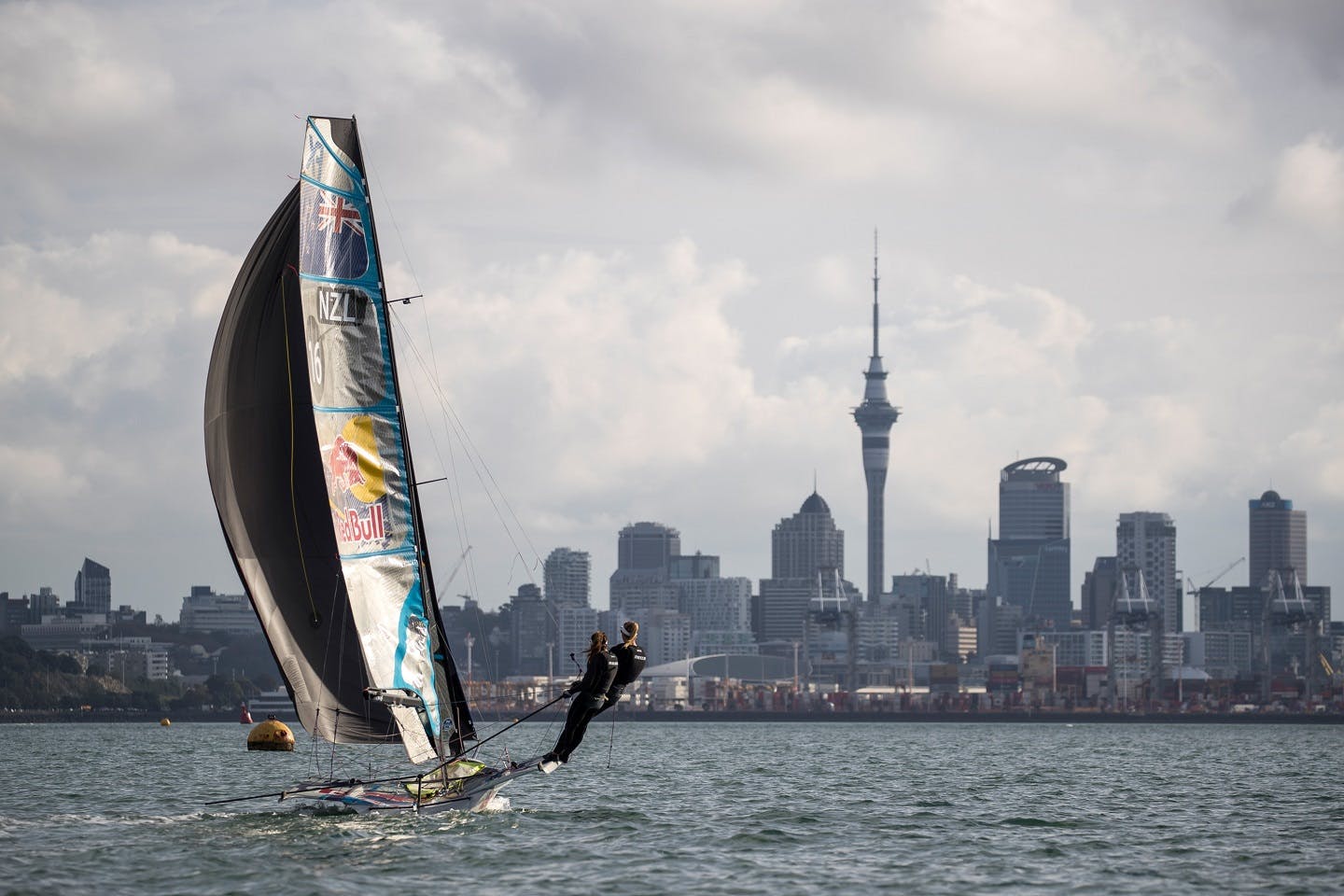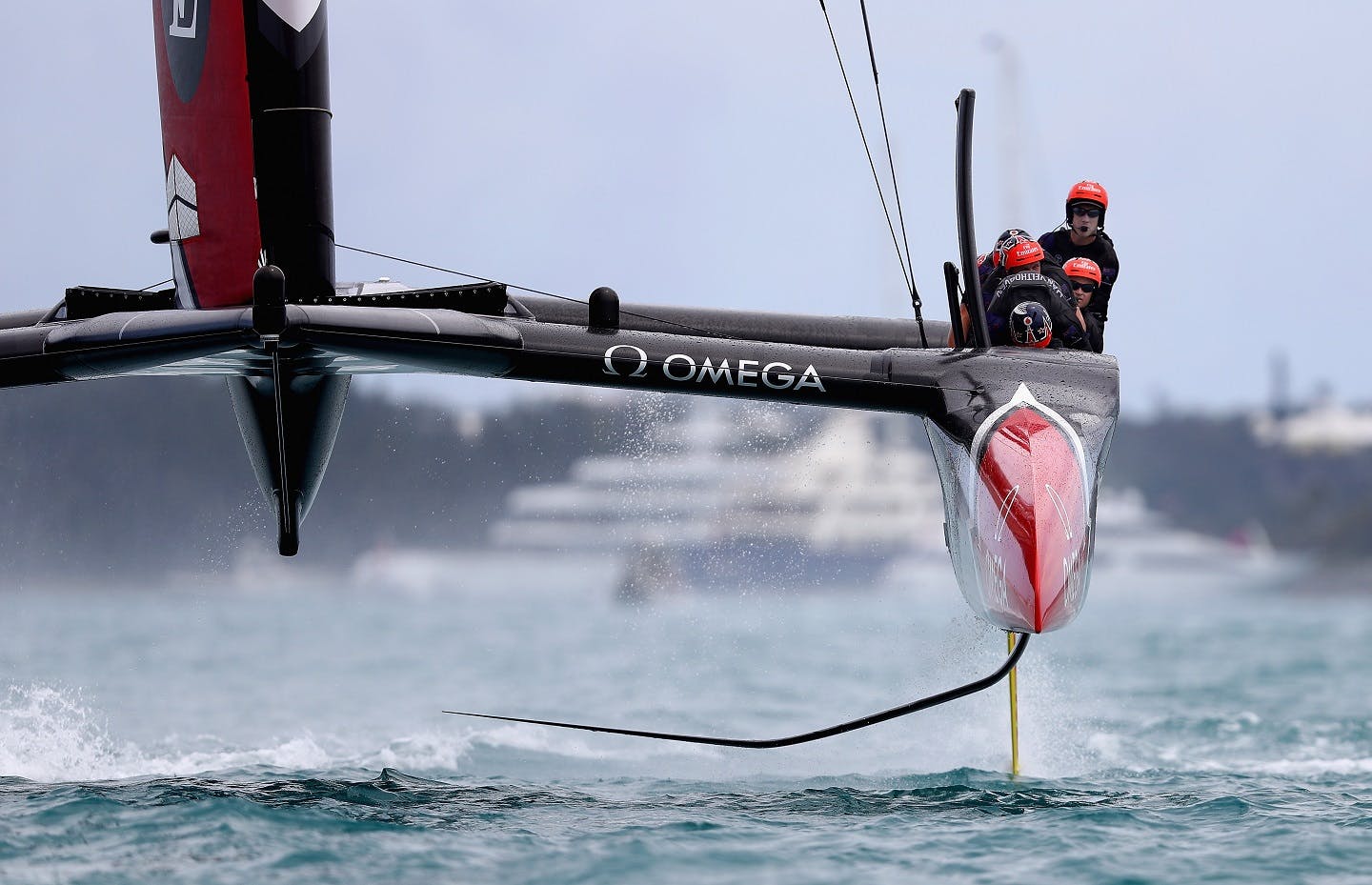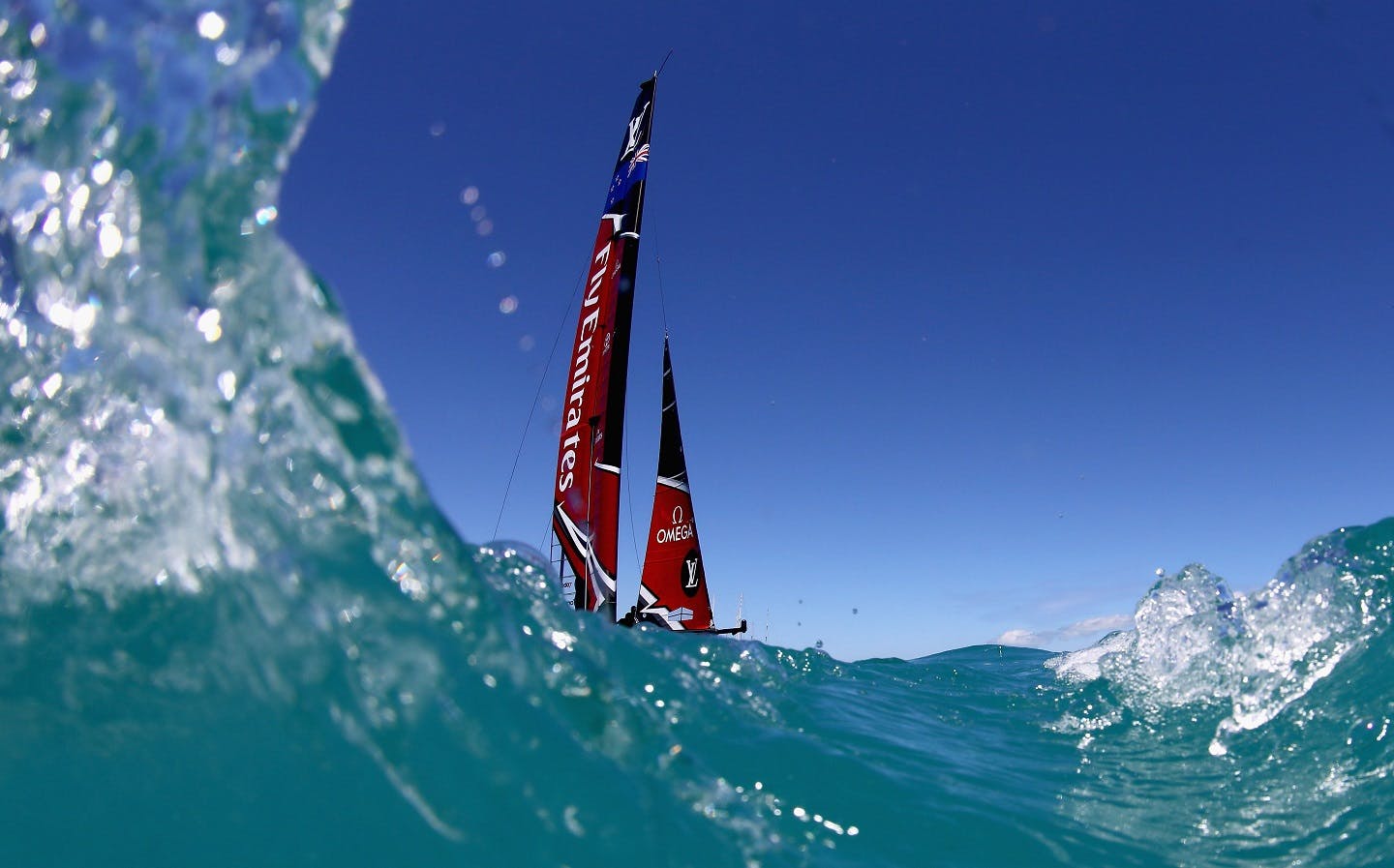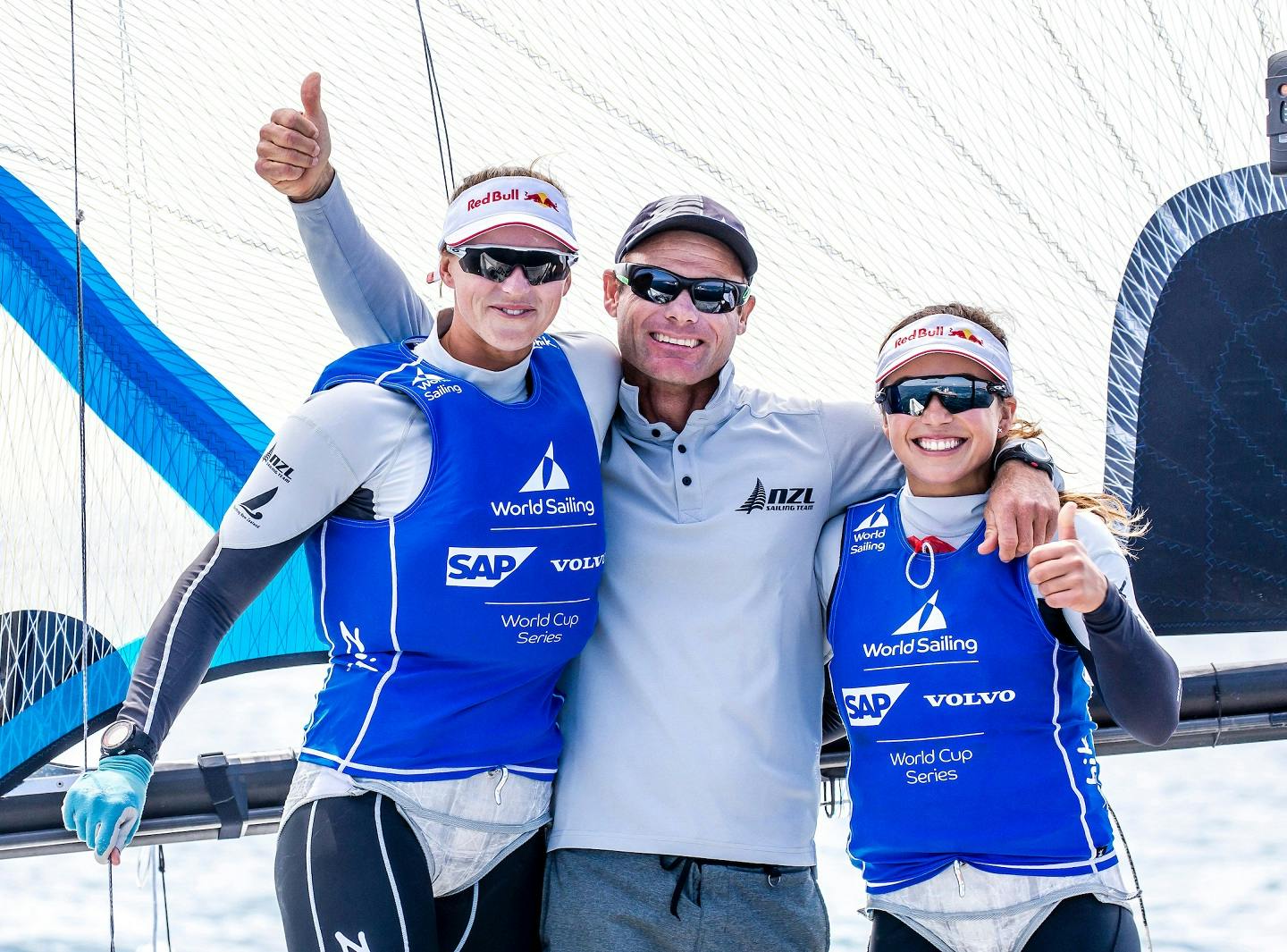Produced in association with Auckland Tourism, Events and Economic Development
Where is Auckland as a major events host right now?
Auckland came of age eight years ago after a merger created a ‘super city’ council. The amalgamation enabled greater cohesion and co-ordination whereas we had been held back previously.
ATEED (Auckland Events, Tourism and Economic Development) came about as a result and our objective is to put Auckland on the map.
We have all the ingredients and attributes that make people want to visit, work and live here. Events play an important part in that because they allow us to showcase the region in the best possible light.
We know that we have a great story to tell. This is a sports city blessed with a very special environment. We have three harbours, rainforest and dormant volcanoes, together with the wildlife, wine and beaches. There’s a huge amount going for us and we are determined to showcase that to the world.

What is the objective and what sort of events are you targeting?
We want to target events which speak to New Zealanders but which are also able to create a buzz internationally. Events are a key element of the visitor economy and play an important social and promotional role.
Rugby World Cup 2011 was a starting point. It helped capture the world’s imagination, and build public confidence that we can host large-scale international events, providing a platform for us to host a succession of other events including the FIFA Under 20 World Cup, 2017 World Masters Games, the 2017 British and Irish Lions Tour and 2015 ICC Cricket World Cup.
Hosting such events has created an expectation that this is now the norm and we believe we are capable of hosting many other events with a unique Kiwi and Auckland flavour. After all, we have won awards as the best medium-sized events city in the world and we are proud of that.

Is it all about the America’s Cup?
No, but it’s an important part of the wider picture. 2021 promises to be a tremendous events year. Not only will we host the America’s Cup but – outside sport – Auckland will welcome 20 world leaders for Leaders’ Week, the pinnacle of APEC 2021. Asia-Pacific is the fastest growing economic region in the world and APEC – the Asia-Pacific Economic Cooperation – is its leading economic forum.
An estimated 10,000 attendees including a large international media contingent are expected to be in the city for Leaders’ Week, which provides a unique opportunity to showcase Auckland as an innovative, globally-connected city.
Whether it is the America’s Cup or APEC Leaders’ Week we are starting to look at events in a new way and consider what are the additional components we can offer.
America’s Cup showcases our harbour and sailing capability. The harbour is a great natural asset, and we are targeting other sailing events around the America’s Cup, such as hosting the 2019 49er, 49erFX and Nacra 17 world championships ahead of the next Olympic Games. We want to be the pre-eminent on-the-water city in the world.
The harbour and our relationship with the sea defines the city in many ways and there are strong links with business. It’s not all about boat building but also marine biodiversity and wider economic development areas. We know we are onto something and will once again have the opportunity to demonstrate out capabilities to the world.

You talk about events with a Kiwi flavour – can you be more specific?
Giving events a Kiwi flavour is important because we are keen to promote the value we place on our history and cultural diversity. It’s about giving a particularly warm welcome to people coming into the country; a particularly important part of our Māori culture. That sense of being welcomed – being invited to experience the essence of this place – is something we want people to feel the moment they arrive at the airport. The world needs to know that we do hospitality as well as, if not better than, anywhere else in the world.
And sport in Auckland is not all sailing and rugby…
Sport is part of the regional and national identity. As a nation we can tend to be a little understated but when we get a chance to show ourselves we can excel.
In recent times we have been building the confidence which allows us to demonstrate we can do this and we can do it bloody well!
Now we have a stronger platform for events. There’s investment from different layers of government as well as (30 per cent) from the private sector, which is the main beneficiary. We are working with all those involved in the visitor economy and developing a clear sense of what the Auckland story really is. While we have the world’s attention it is a key chance to promote the city.
Where does sport fit in with the other events in your portfolio?
There is a strong relationship between sports events and ancillary business events which can run off the back of them. Business and migration are important angles because, as a nation, we still have some skills shortages.
The world has changed, and the number of visitors has doubled in recent years. In Auckland available accommodation will increase 43 per cent in the next five years and we are now all about finding smart ways to grow.
Sports events are a key part of this. Only recently we hosted the sell-out Tonga v Australia Rugby League test match which was absolutely packed out with Tonga supporters who had flown in from everywhere.
The game was a huge success and was in keeping with our large Pacific community – about 15 per cent of our population – and our strong ties with our Pacific neighbours.
Q&A with 49erFX sailors and Olympic silver medallists Molly Meech and Alex Maloney
For you, what makes Auckland a special place to live and train?
Molly Meech: Being around Auckland is pretty special because you are surrounded by the water. For us being able to sail off the [East Coast] Bays, with the beautiful scenery, and having Rangitoto [Island] out there is pretty special. Every time you go to a different place or a different side of Rangitoto, it always looks the same, which is unique to Auckland. Being surround by the water, everyone has a lifestyle that is close to it or on and around it, which is nice.
And what makes it a great sports city in other ways?
Alex: We’re really lucky in Auckland to have some really good facilities, like the high performance centre the Millennium Institute of Sport, and Eden Park for rugby fans. We are surrounded by good facilities, there’s a lot of water for water-based athletes to train and compete on and the national parks are close by, so we have a really good set-up for sports.
What sports events in Auckland have you most enjoyed over the years?
Molly: This is going back a little bit but when the America’s Cup was last here [in 2003] it was just after we had arrived back in New Zealand and it was pretty special to see how much the country got behind the America’s Cup. Since then, the [2011] Rugby World Cup is the last one that has really stood out. Everyone gets so behind the national event, I think it’s going to be special to have our Worlds here and showcase that to Auckland and hopefully the rest of New Zealand [the 2019 49er, 49erFX and Nacra 17 World Championships].
And what are you most looking forward to?
Alex: It will be really cool to compete in front of family and friends and give them a broader sense of what you do to the people who really care about you and follow you throughout your journey. And just being able to showcase your sport to the country.
As an elite athlete, how has Auckland and its sports infrastructure helped your career?
Molly: We have been really fortunate with the support we have had from Yachting New Zealand and also High Performance Sport New Zealand and the government. Through the Millennium Institute here on the North Shore, we have been given training facilities as well as a lot of support staff to help us not only with our sailing but also life and athlete balance. The support they have given us and developing athletes is incredible and I think it really helps performance on the world stage.
What’s your message about Auckland for sports governing bodies and sports fans around the world?
Alex: If people have the opportunity to come and check out Auckland and join an event or check out a city, it’s a cool chance to see how we live and our lifestyle. I think it’s unique. We travel around the world and I think we are pretty lucky here. If people come to watch the 49er and Nacra Worlds, hopefully they enjoy it and get behind the event. Z

Perspective: Stuart Turner, head of major events, ATEED
After 10 years at the helm of EventScotland, the excitement around Auckland’s potential as a major event destination lured Stuart Turner to the Southern Hemisphere to help develop opportunities for a unique waterfront city.
But while acknowledging the pivotal role of the 2021 America’s Cup in refreshing thinking around the city’s relationship with major events, he is determined that the impetus of the world’s oldest international sporting event should be sustainable rather than coming to be seen as a spike.
“Naturally the America’s Cup is the big draw and shows what major events can do for cities. Hosting it provided us with the focus to secure budgets and to refresh our strategy.
“This is a city which is changing in many ways. It has experienced significant population growth through domestic and international migration, while administrative changes transforming Auckland into the largest territorial authority in Australasia have changed the nature of local politics.”
And that in turn appears to have changed the appetite for investing to host and support the right events. “We are in a very positive place. Tourism New Zealand has done a great job over the years and the country is on most people’s list of places to go. Our role is to deliver the events which give visitors that additional reason for visiting New Zealand, and Auckland in particular.
“We understand that while, in Europe, everyone can go off on a long weekend to visit a particular city or attend an event, the fact is that, other than from Australia, you have to take a flight of more than 10 hours to get here. That’s a key reason why we have to use everything we’ve got to give people reasons to make the journey.”
And that understanding has helped lead to a fresh outlook on events which is manifested in Auckland’s new Major Events Strategy.
“Now there’s a greater degree of maturity about the way we operate, and we are focused on doing events which bring sustainable economic and other impacts,” Turner explained.
Those impacts include the social cohesion which can be created by a shared event experience.
“Events help give Auckland and Aucklanders a real sense of identity,” Turner added. “This is a city with a very diverse population mix, with over 220 ethnicities. There are more than 120,000 people of Chinese origin here as well as our sizeable Pacific and Māori populations. Add to that people from elsewhere in Asia, from South America and Europe and you have massive diversity and events help ensure that all the people who live here really feel part of something.
“From a sports perspective, sailing, rugby union and rugby league and netball are all huge in Auckland and now we even have the country’s first professional baseball team. That diversity of sporting interests means that there’s something for most people here and, of course, for visitors.
Turner believes that the impact of the America’s Cup will be ‘profound’ and long-lasting. The last time the historic event was held in Auckland, the waterfront benefited from the development of an old fishing dock, with nearby industrial wharves redeveloped for RWC 2011.
This time around Auckland has fast-tracked a plan to remove a number of old chemical tanks at the end of the wharf to create extra public space which significantly increases the green space and amenity value of the area. This is all part of a shift towards a leisure rather than industrial waterfront which will, in turn, serve visitors as well as local people.
Auckland’s International Convention Centre (NZICC), under construction and due to be completed by 2019/2020, will make a major contribution to the city’s overall events capacity. At the same time there is significant discussion about the city’s stadium stock, which includes the 60,000-capacity rugby union and cricket headquarters at Eden Park along with the 25,000-seat QBE Stadium and the smaller Mt Smart Stadium. There is currently a debate about the prospects for a new stadium to be built on the city’s waterfront which would be the centrepiece of any future Rugby World Cup bid.
“Looking to the future we want to build on the excitement here and we are looking at a range of events, including those in women’s sports which are in a growth phase at the moment.
“New Zealand is hosting the 8th International Working Group on Women in Sport secretariat from 2018-2022, culminating in the 8th World Conference of the International Working Group on Women in Sport at the NZICC in Auckland in May 2022.
“A bid for the 2023 Netball World Cup is in place, as is a bid for Auckland to stage games in the Women’s Rugby World Cup 2021, along with Whangarei, our northern neighbour. We would also look at events like the 2023 FIFA Women’s World Cup – now is the ideal time to host it, before it gets too big. “We are realistic and understand that hosting an event as big as the commonwealth games would require a two-city approach,” Turner said. “The America’s Cup will have a direct economic impact of around $600m but there are many other impacts. Hosting the event will increase our super yacht capacity, boost the yachting services sector and, of course, there is always the chance of retaining the America’s Cup and hosting it again in the future.
“Everybody knows where New Zealand is and lots want to come. We need to give them the reason to make the journey. In many respects that is easier that ever because for much of the world’s population we are now just a single flight away and the flight map continues to get bigger.”